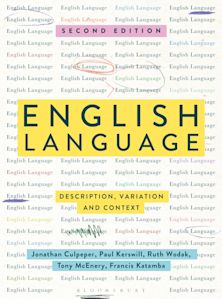The Politics of Incompetence
Learning Language, Relations of Power, and Daily Resistance
The Politics of Incompetence
Learning Language, Relations of Power, and Daily Resistance
This product is usually dispatched within 1 week
- Delivery and returns info
-
Free US delivery on orders $35 or over
Description
“Incompetence” is not an objective state lacking competence nor a kind of deficiency that needs to be filled. Rather, it is a constructed state that is productive, working in tandem with its opposite, “competence.” Perception of incompetence/competence works as what Michel Foucault (1977) calls a technology of “normalization” that pushes individuals to aspire to follow a shared norm, while hierarchically differentiating individuals according to their proximity to the aspired norm. The notion of incompetence is thus “productive” in that it turns individuals into specific kinds of “subjects” (Foucault 1977). The Politics of “Incompetence”: Learning Language, Relations of Power, and Daily Resistance further investigates other productive processes around the perception of “incompetence” specifically through its intersections with various ideologies—“academic achievement,” teacher-student hierarchy, “native speaker” ideology, normative unit thinking, and privilege of vulnerability—as such intersections generate new knowledge, new reflection on one’s assumptions and privilege, new space for marginalized language, and more. This volume opens up a new area of study—productive cultural politics of “incompetence”—by focusing on language learning in diverse contexts: Japanese as a Foreign Language classrooms in US colleges, Italian language tourism in Italy, and indigenous Maori language revitalization at an Aotearoa/New Zealand school.
Table of Contents
Chapter 1: Identities of (In-)Competence and Plurilingual Repertoires: Three Stories of Digital Storytelling in a Japanese Language Classroom by Keiko Konoeda
Chapter 2: “Incompetence” as a Productive Force for Making the Invisible Visible: Linguistic Landscapes Project as a Dialogic Space in a Japanese Language Classroom by Yuri Kumagai with Yuko Takahashi
Chapter 3: Discourse of Incompetence, Unit Thinking, and Uses and Risks of the Translanguaging Framework: Language Politics in Aotearoa/New Zealand by Neriko Musha Doerr
Chapter 4: Studying La Bella Lingua as an Edu-Tourist: An Auto-Ethnographic Account of (In)competence by Cori Jakubiak
Afterword: Towards Understanding Production and Perceptions of (In)Competence by Theresa Austin
Product details
| Published | Jun 24 2024 |
|---|---|
| Format | Hardback |
| Edition | 1st |
| Extent | 194 |
| ISBN | 9781666936230 |
| Imprint | Lexington Books |
| Illustrations | 1 BW Illustration, 1 Table |
| Dimensions | 9 x 6 inches |
| Publisher | Bloomsbury Publishing |
Reviews

ONLINE RESOURCES
Bloomsbury Collections
This book is available on Bloomsbury Collections where your library has access.

































